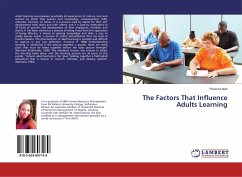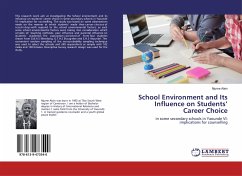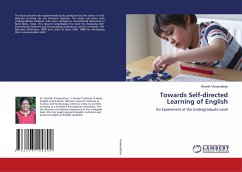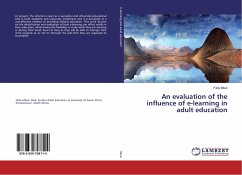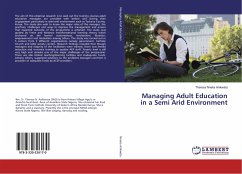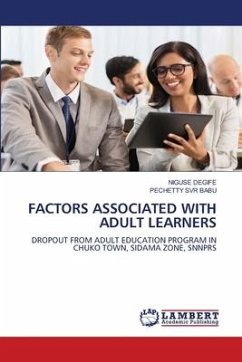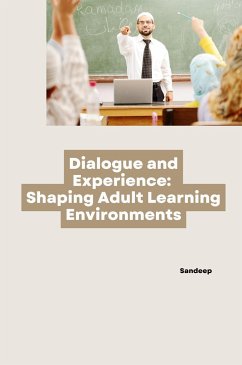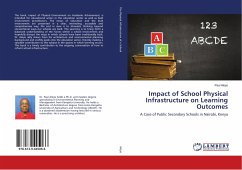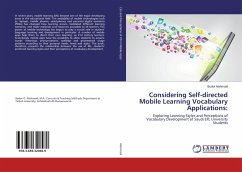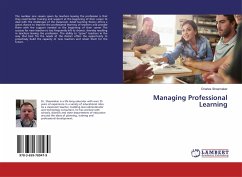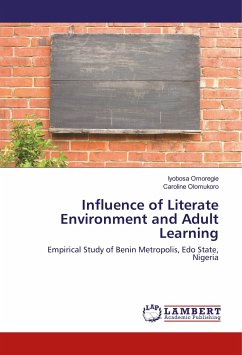
Influence of Literate Environment and Adult Learning
Empirical Study of Benin Metropolis, Edo State, Nigeria
Versandkostenfrei!
Versandfertig in 6-10 Tagen
25,99 €
inkl. MwSt.

PAYBACK Punkte
13 °P sammeln!
A literate environment begets a literate society. The book uniquely stands out as a contribution to enhance the understanding on the relationship between literate environment and adult learning. That is: the where, the what, the how as well as the why of adult learning within the purview of an ecologically valid template for adult learners. With the use of primary data analyzed using descriptive and inferential statistics, the book emphasized the fact that when adults constantly encounter learning materials (with unrestricted access and utilization in their day-to-today tasks) it becomes a too...
A literate environment begets a literate society. The book uniquely stands out as a contribution to enhance the understanding on the relationship between literate environment and adult learning. That is: the where, the what, the how as well as the why of adult learning within the purview of an ecologically valid template for adult learners. With the use of primary data analyzed using descriptive and inferential statistics, the book emphasized the fact that when adults constantly encounter learning materials (with unrestricted access and utilization in their day-to-today tasks) it becomes a tool against hunger, poverty, ignorance, stagnancy, low self-esteem, unemployment and general backwardness which have remained features of Third World nations especially the SSA (Sub Sahara Africa). The hallmark of the book includes the need for stakeholders in adult education delivery especially the government, to urgently address the thorny issue of non-implementation of educational policies and programes as it relates to adult education in Nigeria and Benin Metropolis in particular.



